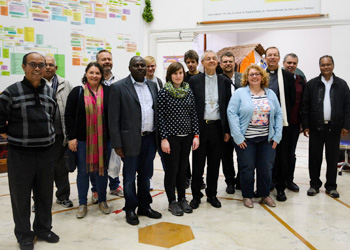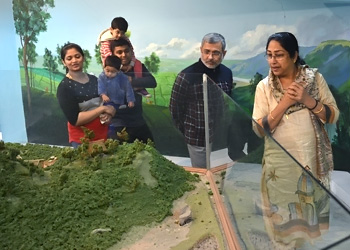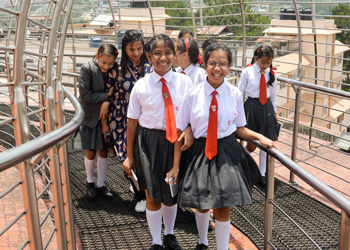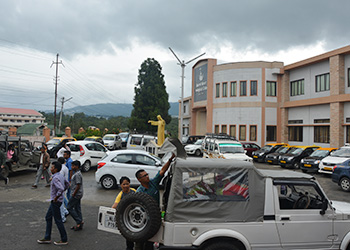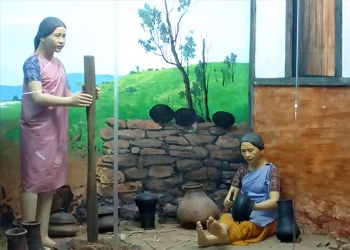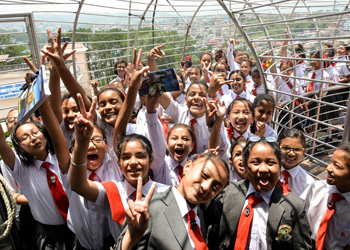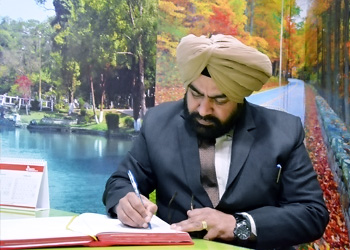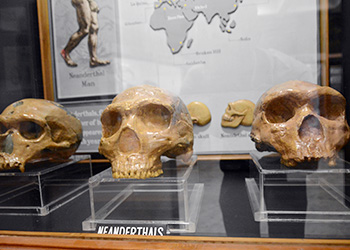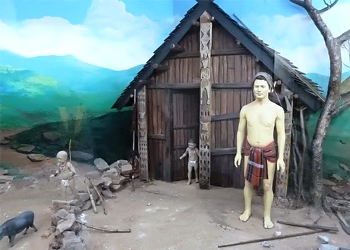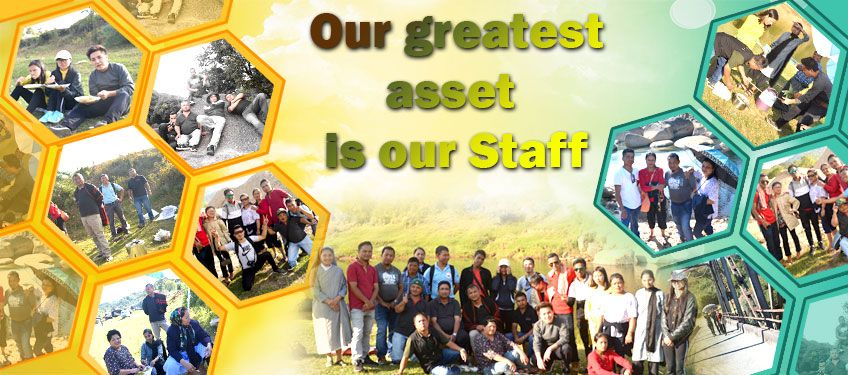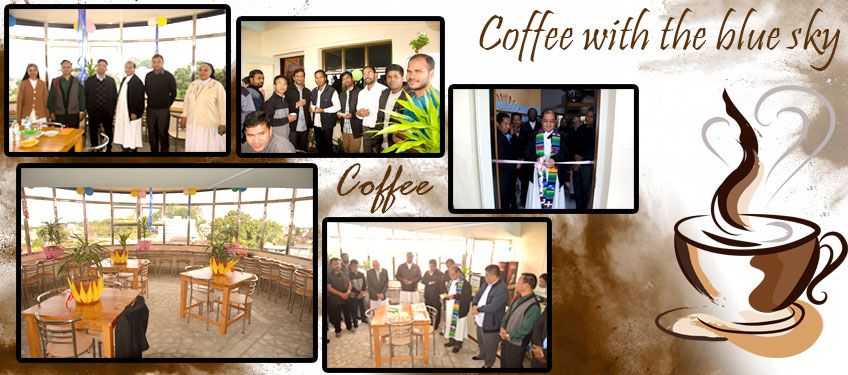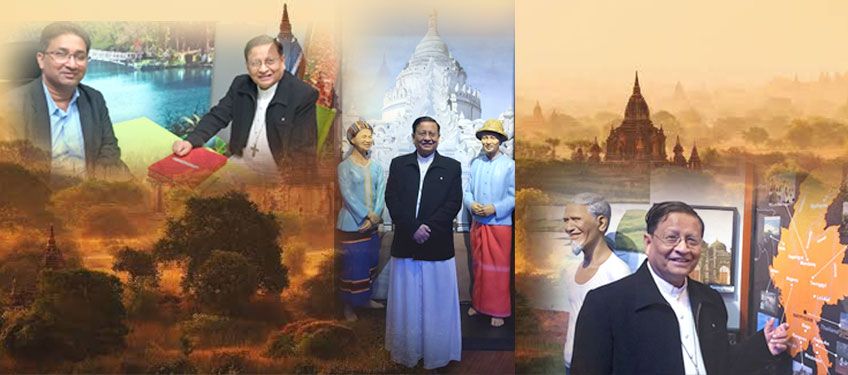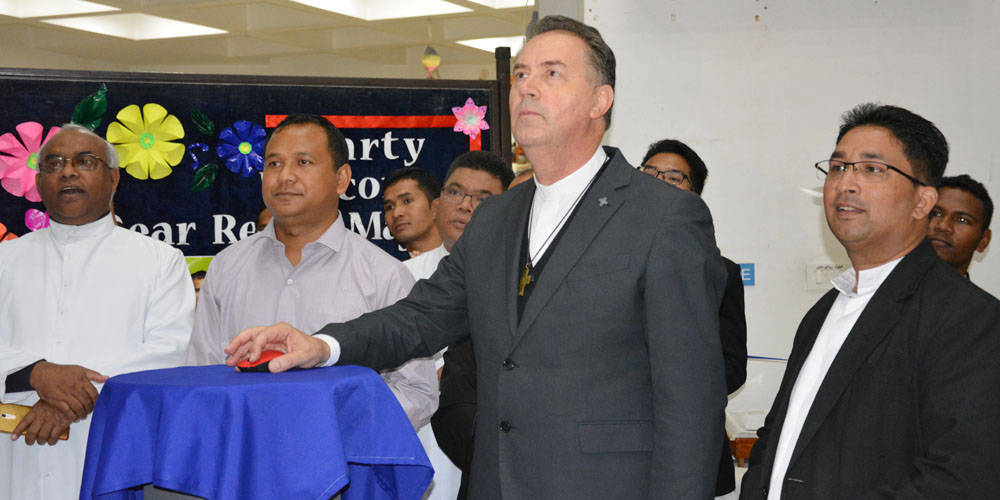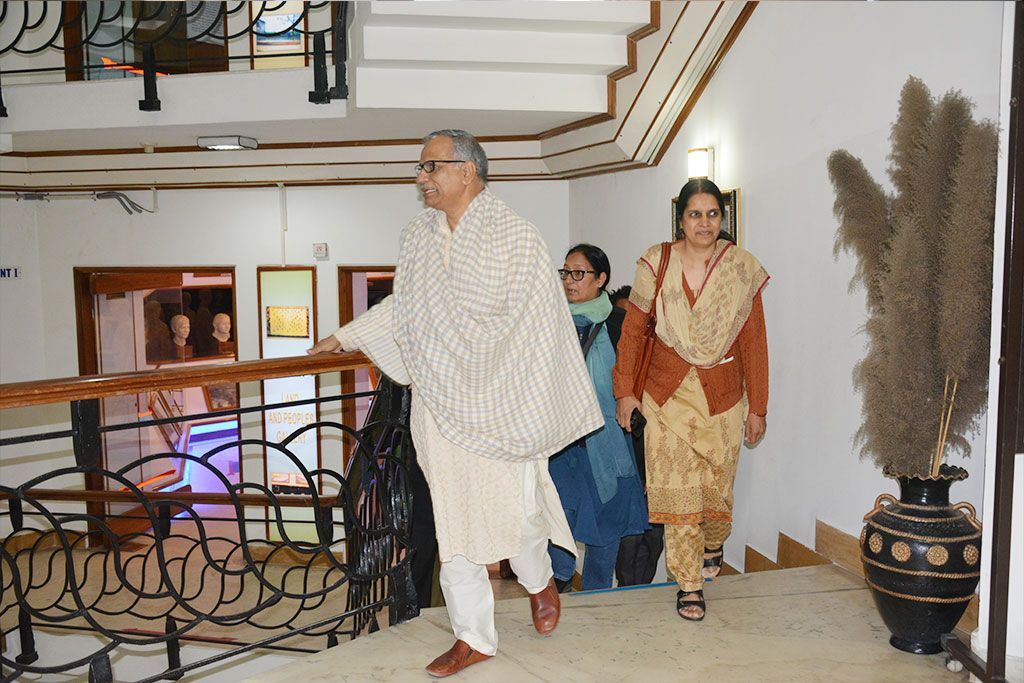Museums in North East India
JAWAHARLAL NEHRU MUSEUM, ARUNACHAL PRADESH
Itanagar, Arunachal Pradesh
The museum is ethnographic in nature. Its collections are housed in a beautiful and well designed two-storied building at a prime location in Itanagar. The exhibits depict and portray various aspects of tribal ways of life of the indigenous peoples of Arunachal Pradesh with the help of dioramas, maps, etc with specially designed showcases and a provision for orientation area.
ASSAM STATE MUSEUM, ASSAM
GN Road, Opposite Digihilipukhri, Ambari, Guwahati-1, Assam
Founded in 1940, the museum is a multipurpose museum. It relentlessly pursued the collection, conservation, documentation and presentation of culture of Assam and its neighbouring States in a scientific manner. The museum houses artefacts ranging from Indus Valley civilization and those excavated from Ambari of about 2000 years old.
REGIONAL SCIENCE CENTRE, ASSAM
Jahawar Nagar, Khanapara, Guwahati-781022, Assam
Established in 1994, Regional Science Centre, a unit of the National Council of Science Museums, Ministry of Culture, Govt. Of India, is the largest and the first of its kind in the North East. The Centre aims at the popularising science and technology among the masses, particular student community and to create scientific awareness in the society. The centre has several exhibitions and galleries, outdoor expositions, planetarium, etc and conducts various interactive programmes.
PURBAJYOTI SANGRAHALAYA MUSEUM, ASSAM
Srimanta Sankaradeva Kalakshetra, Punjabari, Guwahati-781037, Assam
The museum is an ethnographic as well as a heritage museum. The museum holds more than 4500 artefacts that tell the story of the past and present in the realms of material culture and indigenous technology of North East India.
MCG ANTHROPOLOGICAL MUSEUM, ASSAM
Department of Anthropology, Gauhati University, Guwahati-781014, Assam
Exhibition of rare ethnic bark cloths, indigenous bamboo & cane materials, valuable bead & fier items, palaeolithic stone tools. The museum contains materials of both ethnographic and archaeological specimens numbering not less than ten thousand (classifid) from the entire North East region. These are classified as basketry, ornaments, wood items, leather items, masks, iron objects, fier and textile items, musical instruments and earthen objects.
KANGLA MUSEUM, MANIPUR
Kangla, Imphal-795001, Manipur
The museum is a historical museum, depicting the genealogy of the Ningthouja dynasty beginning from Nongda Lairen Pakhangba in 33 AD up-to the last King Kulachandra, who ruled Kangla in 1891 AD. It is a specialized museum highlighting the importance of Kangla based on myth and legend of the land. The museum is an old Victorian Building, constructed by the British in 1901, standing near the southern gate of the Kangla. It is being developed to serve the purpose of an interpretation centre for the visitors from outside the State as well as for the local people.
MANIPUR STATE MUSEUM, MANIPUR
Near Pologround, Imphal-795001, Manipur
Manipur State Museum is a Multipurpose Museum. It was set up in 1969 and was inaugurated on 23rd September by Smt. Indira Gandhi, the late Prime Minister of India. At present, the museum has many galleries of Ethnology, Archaeology, Natural History, Painting and Jallan. The Manipur State Museum is situated close to Imphal Polo Ground in Kangla. This museum houses many paintings of Manipuri rulers along with items such as costumes, arms and weapons, relics and historical artefacts. Hiyang Hiren, an ancient 78 ft long royal boat can also be seen in the open air gallery of the museum. The museum showcases a collection of articles of the former Ningthourels of Manipur.
TRIBAL MUSEUM AND RESEARCH CENTRE, MANIPUR
Sagolband Bijoy Govinda Akham Leikai, Imphal, Manipur
The Tribal Museum and Research Centre, Imphal, Manipur is an ethnographic museum. It is a private museum established in the year 1987. It brought out a very popular programme entitled “Know Your Manipur” in the year 1997. It is a programme of study tour, adventure and self-discovery to the villages inhabited by the tribals of Manipur. The programme is a cultural expedition designed to provide visitors a warm feeling to venture the cultural experiences and work as an interphase between the visitors and the cultural communities.
MUSEUM OF TRIBAL RESEARCH INSTITUTE, MANIPUR
Chingmeirong Khongnan Ani Karak, Imphal, Manipur
The museum is a tribal museum. It is a component of the Tribal Research Institute (TRI) which was established in 1987. While TRI commits itself towards the development of languages, literature, recording and preservation of folk literature, documentation of ethnographic profile of the different tribal communities of the State of Manipur. The museum contemplates on preservation, promotion and highlighting the cultural heritage of Manipur with special reference to tribal society. The objective of the museum is to make it as an audio-visual research centre to focus on the lifestyles of tribal community. The museum is intended to reflect the images of the hill people in all their true perspectives. The artefacts reflect the ways of living in the traditional tribal society, with certain importance attached to the significances of material objects and cultural artefacts in their social and cultural lives.
PEOPLE’S MUSEUM KAKCHING, MANIPUR
Kakching Khullen, Paji Leikai, Thoubal District-795103, Manipur
The museum is a historical and ethnographic museum. It has accumulated nearly 1200 rare manuscripts and scriptures belonging to the State. Many of the sacred puyas or local (Manipuri) religious texts collected in this museum are being sought after by the students of Manipur. The museum has a rich collection of artefacts belonging to the Stone Age. It is also a rich repository of artefacts, tools, wood carving, wooden seats, weighing machines, weapons of hunting and war technological implements, ancient and medieval manuscripts etc. that reflect the complex nature of the culture and civilization of the State. The collection of pottery, tribal headgears and ornaments, rings belonging to the medieval life project the ethnic variety of Manipur.
RKCS ART GALLERY, MANIPUR
Keishamthong Mathak, Imphal West, Manipur
RKCS museum is a museum of art and crafts. It houses some 10,000 paintings on various subjects, including mythology, history and culture.
WANKHAR MEMORIAL MUSEUM OF ENTOMOLOGY
Riatsamthiah, Shillong-793001, Meghalaya
It is an entomological museum or commonly known as Butterfles Museum. It is a private venture of the Wankhar’s family. It is situated in the heart of the city at Riatsamthiah. It is the one of its kinds in Asia that is dedicated to the preservation and global collection of butterfles, moths, beetles and insects. The museum aims at conserving these rare and endangered species collected from different parts of the country and the globe. Most of these fascinating species preserved in the museum are those that are found in and around the State.
WILLIAMSON SANGMA STATE MUSEUM, MEGHALAYA
State Central Library Complex, Shillong-793001, Meghalaya
The museum is an ethnographic museum. The museum offers great insights into the history, aboriginal lifestyle, culture, customs and traditions of the three major matrilineal communities of the state namely the Khasis, the Jaintia/ Pnars and the Garos/ Achik. It aims at promoting and preserving the indigenous practices, lifestyle, traditions and rich heritage. The museum is a treasure repository where ethnic tribal handicrafts, rare archaeological objects, plants, animals and other vestiges of ancient Khasi culture are preserved and displayed.
AIR FORCE MUSEUM, MEGHALAYA
Headquarters of Eastern Command of Indian Air Force, Command Museum, 7th Mile, Upper Shillong, Meghalaya
The museum is a multipurpose museum. The museum offers its visitors an insight into the history of the Indian Air Force and its glorious events especially during the Indo- Pak War of 1971. 7. Speciality of the museum: The most priced exhibit of the museum is the Cariboua fighter plane used during the Indo-Pak War of 1971. Among other things, the museum provides information on the history of planes and air craft, models of actual aircraft, world oldest airport and the Wrightbrothers’ memorial etc.
MANEKSHAW MUSEUM, MEGHALAYA
58 Gorkha Training Centre, Happy Valley, Shillong, Meghalaya
The museum is a military museum. It is dedicated to the legendary Field Marshal Sam Horsmuji Framji Jamshedji Manekshaw. It is a loving tribute for his distinguished military career spanned four decades and five wars, beginning with his service in the British India Army in World War II. Under his commandn forces conducted victorious campaigns against Pakistan in the Indo-Pakistan war of 1971 that led to the liberation of Bangladesh in December 1971.
RHINO HERITAGE MUSEUM, MEGHALAYA
Laban, Shillong-793002, Meghalaya
The Museum is historical museum. The museum showcases the valiant history of 101 Area, the fist Army formation to reach Dacca during the 1971 Indo-Pak War. The building of the museum is of great historical significance. It was built way back in 1928. During the World War II, it served as a place of detention to many Japanese soldiers. The museum showcases the historical photographs related to the Military and the local culture. A special gallery is reserved in memory of Capt. Keishing Clifford Nongrum – the local lad and an Indian Army officer who fought courageously and sacrificed his life during the Operation Vijay (Kargil War) in July 1, 1999. Some of his photographs, letters written by his father and some of his handwritten manuscripts are preserved and showcased. The museum also houses weapons used during the war of Liberation of Bangladesh.
GEOLOGICAL MUSEUM, MEGHALAYA
GSI Complex, Nongrim Hills, North Eastern Region, Shillong-793003, Meghalaya
The museum is a geological museum. It is a rich repertoire of the samples of rocks, minerals and fossils of million years ago found in and around North East India. It is really a treasure house for scholars and students to visit.
DON BOSCO MUSEUM, MEGHALAYA
Mawlai Pudmuri, Shillong-793008, Meghalaya
Don Bosco Museum (DBM) is an ethnographic museum. It is a component of Don Bosco Centre for Indigenous Cultures (DBCIC). Don Bosco Museum is a well known tourist destination today. It rises into Shillong’s skyline as a unique landmark centre. The skywalk provides the visitors a 360° view of the beautiful queen city, Shillong. The food gallery which was recently added to it affords the visitors to get a taste of at least a few of the eight North Eastern indigenous cuisines. The Souvenir Counter has a rich collection of mementos including publications on themes connected with indigenous cultures of the North East.
MIZORAM STATE MUSEUM, MIZORAM
Mac Donald Hill, Zarkawt, Aizawl-796001, Mizoram
The Mizoram State Museum, an ethnographic museum with multipurpose collections, consists of seven galleries including a small archaeological gallery showcasing the cultural heritage of the people and rich biodiversity of the state of Mizoram. The Mizoram State Museum, the only museum in Mizoram was established in 1977. It has been functioning as one of the wings of the Department of Art & Culture, Government of Mizoram.
STATE MUSEUM NAGALAND, NAGALAND
Directorate of Art & Culture, Kohima-797001, Nagaland
The museum is an ethnographic museum. The museum attempts to present a panoramic view of the rich socio-cultural life and heritage of the Nagas- vividly depicted through the anthropological, ethnological and art galleries and the open air display. The museum showcases the rich and varied artefacts, costumes and lifestyles of the Naga tribes. These displays provide a glimpse into the rich cultural mosaic of the Nagas which is unique even among the other tribes of the North East. Besides, it displays the personal belonging of Dr. Imkongliba, the president of Naga People’s Convention, which negotiated with the Government of India for formation of the State of Nagaland during 1957-1961.
CHUMPO MUSEUM, NAGALAND
H. No. 45, C-Khel, Sovima, 6th Mile Dimapur-797112, Nagaland
Chumpo museum is a non-profit private museum located at Sovima, 6th Mile, Dimapur, Nagaland. Chumpo is the Lotha Naga name for bachelors’ dormitory. In the Naga society, Chumpo served as a center for preservation and dissemination of culture. Chumpo Museum celebrates the life-affirming aspects of Naga peoples and is committed to enhance the cultural well-being of the Nagas. As a self-representation of Naga culture, Chumpo Museum is a Naga model of museum and curation. It is a “living museum” where the evolving dynamism and vitality of Naga culture can be experienced by visitors.
SALESIAN COLLEGE MUSEUM, NAGALAND
Salesian College, Kuda-A, Nagarjan-A, PB No 43, Dimapur-797112, Nagaland
The Museum located at Salesian College of Higher Education has a rare collection of artefacts from the different tribes of North Eastern States. It is an expression of Don Bosco’s love for the indigenous communities of the Region. The Museum helps to preserve, promote and appreciate the cultural heritage of North East India.
NAMGYAL INSTITUTE OF TIBETOLOGY MUSEUM, SIKKIM
Deorali, Gangtok-737102, Sikkim
The museum is a rich repository of all the known Tibetan books and religious articles/artefacts of the Mahayana Buddhism. It is located on the ground of the institute premises is the showpiece of the Institute and indeed that of Sikkim itself. The museum houses icons, objects, traditional art objects, thangkas as well as original manuscripts in Sanskrit, Tibetan, Chinese and Lepcha. Some of the unique objects in the museum are a Sanskrit palm-leaf manuscript circa 1050 AD containing a rare commentary on Prajnaparamitra, obtained from a Sakya monastery in Tibet; the 11th century statue of Vajrasattva; and Tibetan manuscripts in gold glittering dating back to the 11th century.
NEPALI MUSEUM, SIKKIM
Yuva Kalyan Sangh, Lower Aho, East Sikkim-737135, Sikkim
The museum is ethnographic in nature. It houses some 200 ethnographic artefacts which represents the socio-cultural and material culture of the Nepali community of Sikkim.
LEPCHA MUSEUM, SIKKIM
Namprikdang, Lower Dzongu, North Sikkim-737116, Sikkim
The museum is an ethnographic museum. The museum exhibits various ethnographic objects of both organic and inorganic nature that reflect the rich socio-cultural heritage and activities of Lepcha in Sikkim.
TRIPURA STATE MUSEUM, TRIPURA
Ujjayanta Palace, Agartala-799001, Tripura
Tripura State Museum is a historical and ethnological museum. It was previously known as the Tripura Government Museum. It was established in 1970 at the heart of Agartala city. Lately, it was shifted to the Ujjayanta place, a heritage building constructed in 1901 with a new approach and better perspective based on a national outlook with a focus on the North East. The State Museum is aimed to serve as the core of a larger action research and cultural activity centre which will link heritage and culture to human development and security, and preserve nature- culture balance through creative mechanisms. The museum showcases the lifestyles, arts, culture, tradition and utility crafts, beside the customs and practices of various communities residing in Tripura and the North East.
TRIBAL MUSEUM CUM HERITAGE CENTRE, TRIPURA
TTAADC Headquarter Complex, Khumulwng, Radhapur, Jirania, Tripura (W)-799045, Tripura
The museum is a cultural and heritage museum. Tribal Museum cum Heritage Centre, Khumulwng an endeavour of Tripura Tribal Areas Autonomous District Council (TTADC) was established in 2010 with the aim of promoting and showcasing the rich cultural heritage of the tribes of Tripura. It is located at Khumulwng, the headquarters of TTADC and an icon of tribal identity. It is about 25 Km away from Agartala. The museum was initiated under the 25 point package for tribal development undertaken by the State Government. It is housed in a two-storied building and its collections revolve around the life and culture of different tribes residing in Tripura.
TRIPURA STATE TRIBAL MUSEUM, TRIPURA
Tribal Research and Cultural Institute, Govt. of Tripura, Lake Chowmuhani, Agartala-799001, Tripura
The State Tribal Museum is a ethno cultural museum and depicts all components of tribal heritage and Culture. In this museum one can get the idea about the 19 tribes of Tripura and their language, culture, socio-economic condition, dresses, ornament and everyday life. There is an audiovisual room for demonstration of ethnographic documentary fims on the tribes of Tripura.






